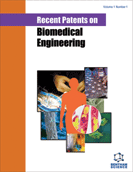Abstract
Phototherapy, the use of light for healing, has in recent years been a field of advanced multidisciplinary research. This modality has been shown to be beneficial in a wide and diverse range of maladies, including the healing of chronic and acute wounds as demonstrated by the use of laser light and LED (Light Emitting Diodes) technology. Lasers are handy tools in the laboratory. However, the specific characteristics of laser light, such as coherency and polarization, have not been proven to be relevant for the light-tissue interaction. We therefore studied the effect of broadband visible light on various cell cultures at appropriate energy doses, and proved that it can mimic lasers and LEDs. The present article presents a patented (US6379376) broadband (400-800 nm) light device which was invented by the first author and which is especially useful for wound healing. Its ability to irradiate large areas is very important for wound healing, in contradistinction to laser or LED beams which can only irradiate a small area. Another advantage of the broadband visible light device is its low cost, which will enable patients to purchase it for home use. The same device when operated at high intensity was shown to have bactericidal effects. This article describes the general principles of the visible light-tissue interaction and reports use of the broadband visible light device for treatment of patients with chronic ulcers which were not cured by conventional treatments. The bactericidal effect of the new device is also demonstrated.
Keywords: Wound healing, reactive oxygen species (ROS), broadband visible light
 14
14

